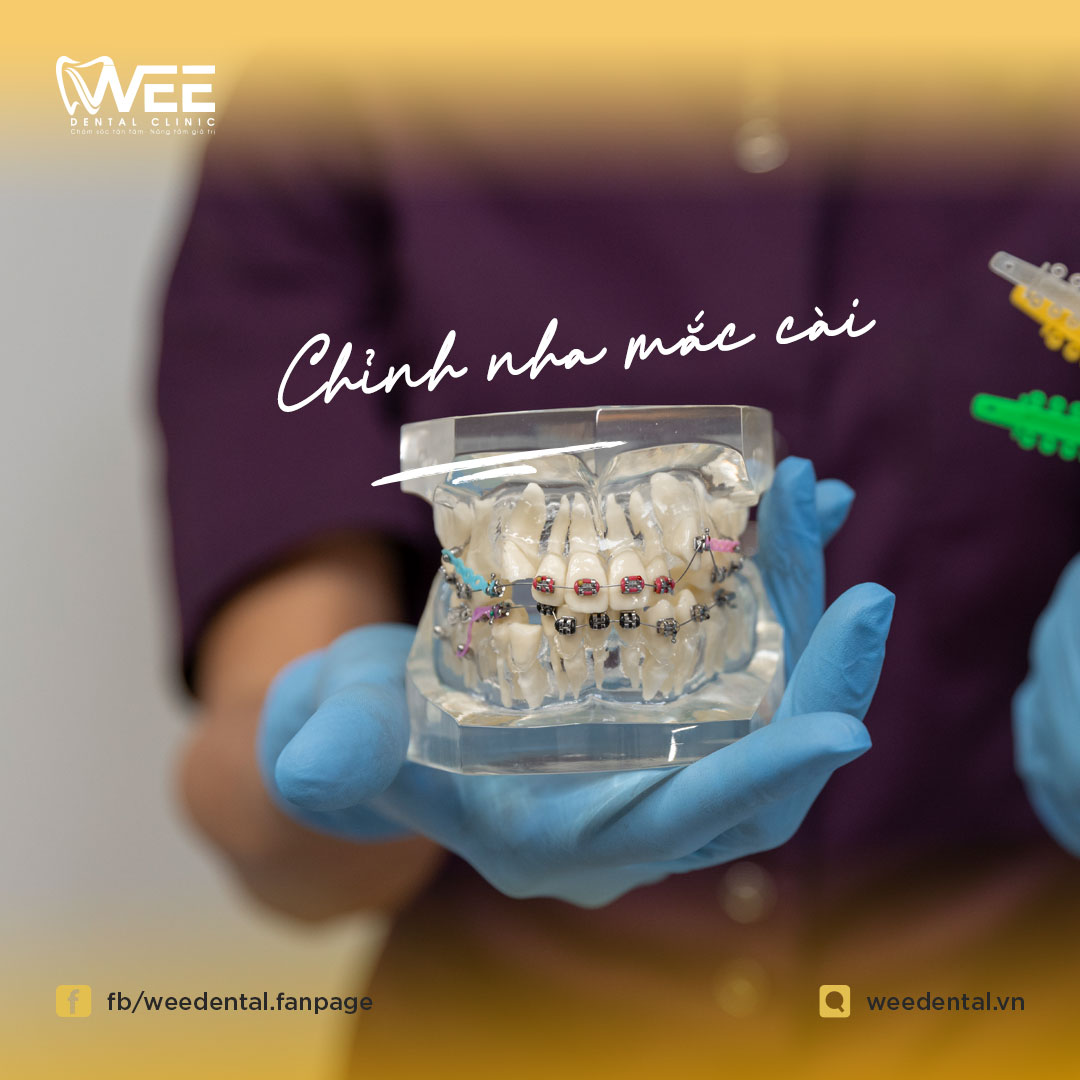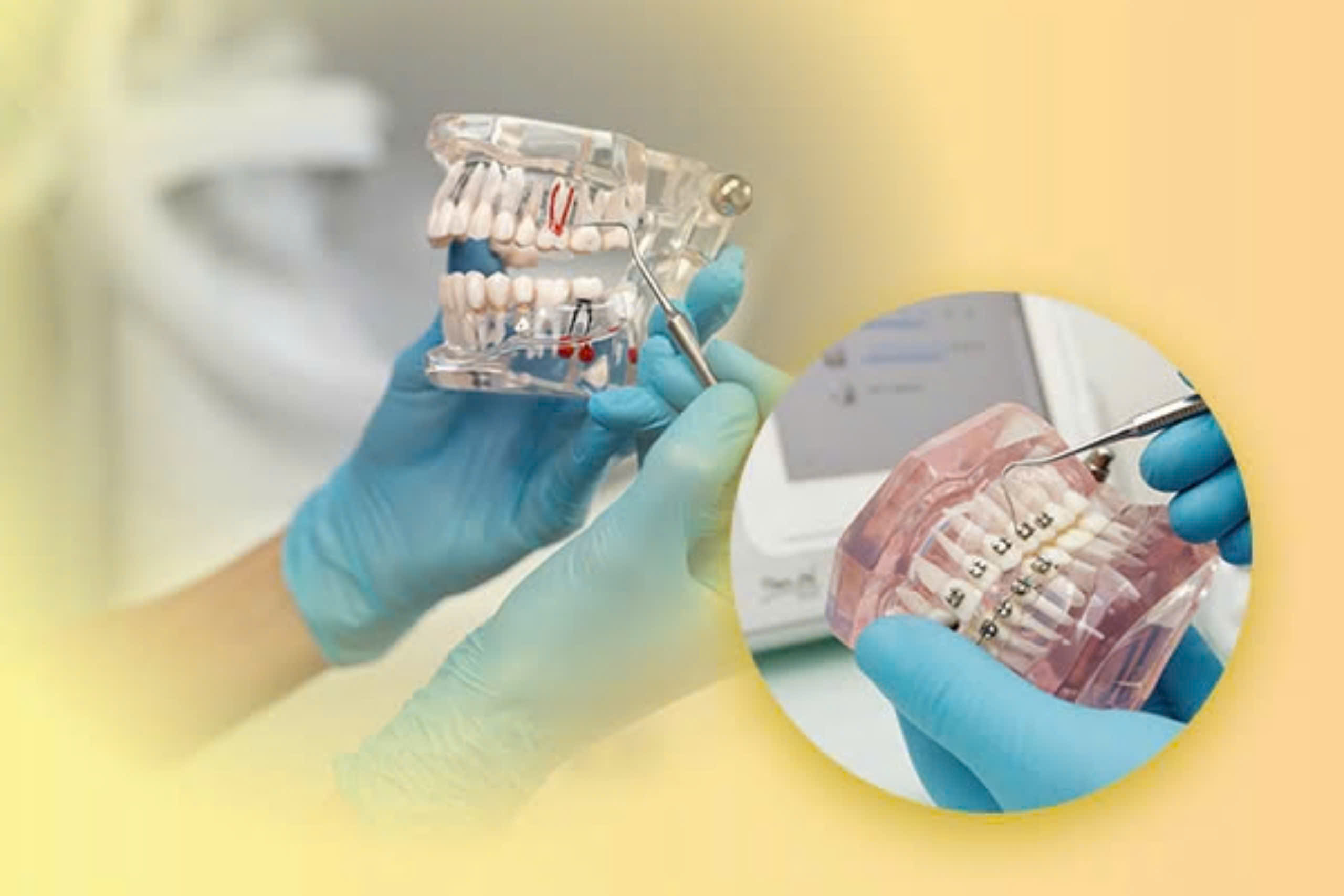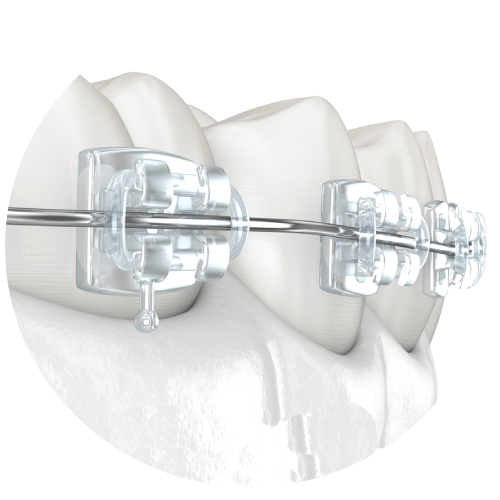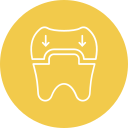



Booking
BRACES ORTHODONTICS
Along with the development of the dental industry, many modern orthodontic methods have emerged. However, braces remain one of the top choices for those wishing to achieve a beautiful smile. This is the earliest orthodontic technique, utilizing a system of appliances including brackets, archwires, and elastic bands that work together to create a consistent force on the teeth. As a result, the teeth gradually shift over time and return to the desired position.
What Are the Common Types of Braces?
Braces are the most traditional and popular method for correcting misaligned teeth. However, with the advancement of technology, there are now many different types of braces to choose from, each with its own advantages and disadvantages.
Here are the common types of orthodontic braces:
1. Metal Braces:
2. Ceramic Braces:
3. Self-Ligating Braces:
4. Lingual Braces (Inside the Teeth):
When choosing the type of braces, you should consider the following factors:
- Budget
- Aesthetic requirements
- Degree of tooth misalignment
- Oral hygiene maintenance
- Consultation with an orthodontist


In Which Cases Should Braces Be Used?
Braces are suitable for cases involving misaligned teeth and jawbones, where a comprehensive treatment is desired while preserving natural teeth:

Tooth misalignment: crowded teeth, gaps between teeth, overbite, underbite, etc.

Malocclusion: overbite, underbite, deep bite, open bite, etc.

Cases related to the jawbone, such as narrow jaw or jaw misalignment.
Among them, the recommended age to start braces treatment is from 6 years old until adulthood. Many cases of orthodontic treatment at the age of 50 also yield good results.
Advantages and Disadvantages of Braces

The advantages that braces treatment offers to customers include:
This method typically requires a relatively low treatment cost compared to other orthodontic options.
The brackets and archwires are highly durable, corrosion-resistant, and allow for continuous orthodontic treatment. The consistent and strong pressure ensures that the teeth will move to the desired position more quickly.
In addition to the highlighted advantages, this method also has some disadvantages, such as:
The color of the brackets and metal contrasts significantly with natural teeth, making them noticeable. The brackets protrude on the teeth, causing the smile to lose its natural beauty.
The brackets can rub against the lips, cheeks, and tongue, causing irritation. You may also feel a sense of pressure and discomfort in your mouth during the initial adjustment period.
Braces Orthodontic Procedure:
The Journey to a Beautiful Smile
Braces treatment is a process that consists of several steps, from initial examination to achieving the desired straight teeth. Below is the detailed procedure:

Comprehensive Dental Examination and X-ray

Treatment Plan Consultation and Dental Impressions

Placement of Orthodontic Appliances

Regular Follow-up Appointments to Monitor Progress

Removal of Braces and Retainer Use
1. Examination and Consultation:
- Comprehensive Examination: The doctor will check your oral health, take X-rays to assess jawbone condition and occlusion.
- Treatment Method Consultation: Based on the examination results, the doctor will advise you on the suitable type of braces, estimated treatment duration, and costs.
2. Dental Impressions:
- The patient will receive a tailored treatment plan and have their dental impressions taken.
- The impressions are used to create an accurate model of the mouth for designing the braces.
3. Placement of Braces:
- Teeth Cleaning: The teeth will be thoroughly cleaned before placing the braces.
- Braces Placement: The doctor will use adhesive to attach the brackets to the tooth surfaces.
- Archwire Placement: The archwire is threaded through the slots of the brackets to create the force needed for tooth movement.
4. Regular Adjustments:
- Changing the Archwire: After a certain period, the doctor will replace the archwire to increase the force on the teeth.
- Bracket Adjustments: If necessary, the doctor will adjust the position of the brackets to ensure the teeth move according to the plan.
5. Removal of Braces and Retainer Use:
- When the teeth have reached the desired position, the doctor will remove the braces.
- After removing the braces, you will be fitted with a retainer to keep the teeth in their new position and prevent them from shifting back.

Braces Treatment Duration: How Long Until You Have a Beautiful Smile?
The duration of braces treatment depends on many factors, including:
- Complexity of the dental condition: If the teeth are only slightly misaligned, the treatment time will be shorter compared to cases of severely crowded teeth, overbite, or underbite.
- Age: Younger individuals often have developing jawbones, which may allow for faster treatment.
- Patient compliance: Properly wearing the braces and maintaining good oral hygiene will help speed up and enhance the effectiveness of the treatment.
- Type of braces: Each type of braces has different pros and cons that can affect the treatment duration.
Typically, the duration for braces treatment ranges from 18 to 36 months. However, this is just an estimate. Some cases may require only one year, while others may extend to three years or more.
Factors Affecting Braces Treatment Duration:
- Number of teeth needing adjustment: If many teeth need to be moved, the treatment duration will be longer.
- Degree of tooth misalignment: The more severe the misalignment, the longer the treatment will take.
- Jawbone condition: If the jawbone is weak or there are issues with occlusion, the treatment time may be prolonged.
Why Do Treatment Times Vary?
Each person has a different oral condition, so the treatment duration will also vary. For example:
- Simple cases: Teeth that are only slightly misaligned or have mild crowding may take only 12-18 months.
- Complex cases: Severely crowded teeth, significant overbite or underbite that may require tooth extraction or surgical assistance could take 3-4 years.
How to Shorten Braces Treatment Time?
- Choose a reputable dental clinic: A reputable clinic will have experienced dentists and modern equipment, facilitating a quicker and more effective treatment process.
- Follow the dentist’s instructions: Properly wear the braces, maintain good oral hygiene, and attend regular check-ups as scheduled.
- Maintain good oral hygiene: Keeping the mouth clean will help ensure a smoother treatment process.
Important Considerations for
Achieving Desired Results with Braces
To ensure a smooth orthodontic journey and achieve the desired results, keep the following tips in mind:
Before Treatment

Choose a reputable and reliable orthodontic clinic with a team of specialized and experienced orthodontists.

Treat any lingering oral health issues (if any).

Maintain a calm and relaxed mindset.
After Treatment

Use auxiliary devices as directed and guided by the doctor.

Practice proper oral hygiene at least twice a day.

Use a water flosser and dental floss to remove food particles.

Eat soft, easy-to-chew foods during the first week after the braces are placed.

Avoid hard foods to minimize discomfort and prevent the brackets from loosening.

Attend follow-up appointments as scheduled so the doctor can monitor the movement of your teeth.
For detailed consultation about braces treatment, don’t hesitate to message or call the hotline of WEE Dental Clinic. With a team of specialized doctors and modern medical equipment, WEE Dental Clinic will provide you with the best experiences!
WEE Dental - Caring with dedication - Elevating value.
- Address: 127 Luong Dinh Cua, Quarter 3, An Khanh Ward, District 2, Thu Duc City, Ho Chi Minh City.
- Hotline: 0362 790 924
- Website: weedental.vn
- Fanpage: https://www.facebook.com/weedental.fanpage/
Detailed Consultation on
Costs and Plans for
Orthodontics
Thousands of customers have beautiful, healthy smiles with proper occlusion and harmonious aesthetics.

